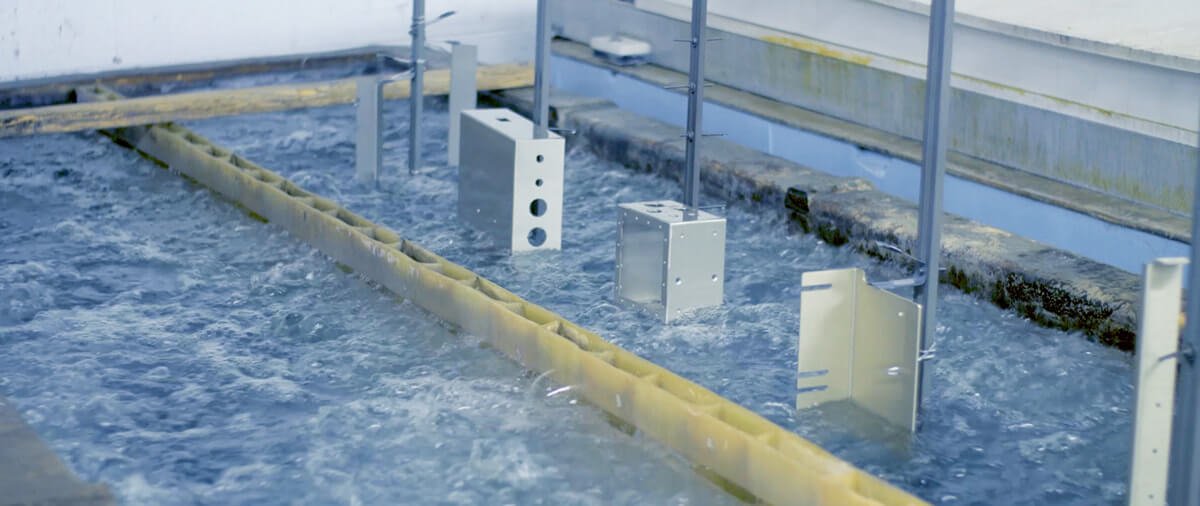Manajemen suhu yang efektif sangat penting untuk mengoptimalkan operasi industri dan komersial. Dari memastikan kualitas produk hingga melindungi peralatan, mengendalikan panas adalah tantangan yang harus diatasi oleh pendingin air dengan efisiensi luar biasa. Sistem ini telah menjadi solusi tepat di berbagai industri seperti manufaktur, produksi makanan, dan manajemen data. Dalam artikel ini, kita akan mengeksplorasi delapan manfaat utama penggunaan pendingin air untuk proses pendinginan, yang menunjukkan nilainya sebagai investasi yang andal dan serbaguna.
Aplikasi Apa yang Membutuhkan Pendinginan Proses?

Aplikasi industri yang memerlukan sistem pendingin untuk prosesnya tidak ada habisnya. Di bawah ini adalah daftar operasi manufaktur teratas yang secara rutin mendapat manfaat dari penggunaan sistem pendingin:
- Pembuatan plastik
- Penyelesaian Logam
- Ruang reaksi kimia
- Tempat pembuatan bir minuman beralkohol (fermentasi)
- Hidraulik, pendinginan sistem roda gigi
- Oven pengawetan komponen
- Pendinginan Kenyamanan
Dalam setiap aplikasi ini, proses pendinginan bertujuan untuk meminimalkan kerusakan pada peralatan yang sensitif terhadap panas dan mencegah perubahan suhu yang tidak diinginkan terhadap kualitas produk akhir.
1. Efisiensi Pendinginan Unggul
Pendingin air mengungguli banyak alternatif karena konduktivitas termal air yang sangat baik, melebihi konduktivitas termal udara. Dengan mensirkulasikan air dingin melalui sistem loop tertutup, alat ini menyalurkan pendinginan yang cepat dan konsisten langsung ke sumber panas, seperti mesin atau jalur produksi. Efisiensi ini mengurangi waktu pendinginan dan penggunaan energi, sehingga menawarkan opsi hemat biaya untuk lingkungan dengan suhu panas tinggi.
2. Kontrol Suhu Yang Tepat
Industri seperti farmasi, pengolahan makanan, dan produksi bahan kimia memerlukan pengaturan suhu yang tepat untuk menjaga kualitas dan keamanan. Pendingin air memberikan presisi yang luar biasa, sering kali menahan suhu dalam ±0,5°F (±0,3°C). Dengan termostat canggih dan pemantauan waktu nyata, termostat beradaptasi terhadap perubahan kondisi, memastikan kinerja yang konsisten bahkan untuk proses yang paling sensitif sekalipun.
3. Penghematan Energi dan Efisiensi Biaya
Meskipun pendingin air memerlukan investasi awal, penghematan jangka panjangnya tidak dapat disangkal. Dirancang untuk efisiensi energi, sistem ini mendinginkan secara efektif dengan daya yang lebih kecil dibandingkan sistem tradisional. Jika dipadukan dengan opsi pemulihan panas—seperti menggunakan limbah panas untuk menghangatkan air—maka biaya operasional akan semakin turun, sehingga meningkatkan profitabilitas dan keberlanjutan.
4. Fleksibilitas di Seluruh Aplikasi
Pendingin air unggul dalam kemampuan beradaptasinya. Tersedia dalam model berpendingin udara dan berpendingin air, produk ini memenuhi berbagai kebutuhan, mulai dari mendinginkan tangki tempat pembuatan bir hingga menstabilkan ekstrusi plastik. Desainnya yang terukur dan modular cocok untuk segala hal mulai dari bengkel kecil hingga kompleks industri yang luas, menjadikannya pilihan yang fleksibel untuk beragam pengaturan.
5. Umur Peralatan yang Diperpanjang
Panas adalah penyebab utama keausan peralatan, sehingga memberikan tekanan pada komponen seperti motor dan bantalan. Pendingin air mengurangi hal ini dengan menghilangkan panas secara efisien, mencegah panas berlebih, dan mengurangi ketegangan mekanis. Hasilnya? Lebih sedikit kerusakan, biaya perbaikan lebih rendah, dan masa pakai lebih lama untuk mesin berharga Anda.
6. Solusi Pendinginan Ramah Lingkungan
Dengan fokus pada keberlanjutan, pendingin air menonjol sebagai pilihan yang sadar lingkungan. Banyak yang menggunakan zat pendingin dengan GWP (potensi pemanasan global) rendah seperti R-410A atau R-134a, sehingga meminimalkan dampak ekologisnya. Dikombinasikan dengan desain hemat energi dan pemulihan panas, teknologi ini membantu bisnis mengurangi jejak karbon sekaligus memenuhi kebutuhan pendinginan.
7. Mengurangi Tingkat Kebisingan
Tidak seperti beberapa sistem pendingin berbasis udara yang mengandalkan kipas bersuara keras, pendingin air beroperasi dengan kebisingan minimal, terutama model berpendingin air. Hal ini menjadikannya ideal untuk lingkungan yang memerlukan lingkungan tenang, seperti kantor, laboratorium, atau fasilitas medis. Dengan menjaga polusi suara tetap rendah, mereka meningkatkan kondisi kerja tanpa mengorbankan kinerja.
8. Peningkatan Konsistensi Proses
Konsistensi sangat penting dalam produksi, dan pendingin air mewujudkannya dengan mempertahankan kondisi pendinginan yang stabil. Baik itu mencegah fluktuasi termal di pusat data atau memastikan pendinginan cetakan yang seragam di bidang manufaktur, sistem ini menghilangkan titik panas dan variabilitas. Keandalan ini meningkatkan kualitas produk dan mengurangi pemborosan, menghemat waktu dan sumber daya.
Dampak Dunia Nyata

Bayangkan sebuah pabrik pengolahan makanan menggunakan pendingin air untuk mendinginkan bahan-bahan selama produksi. Kontrol yang tepat menjaga kesegaran, sementara penghematan energi memangkas biaya. Atau bayangkan sebuah pusat data di mana pendinginan yang konsisten dan tingkat kebisingan yang rendah menjaga server tetap berjalan dengan lancar. Contoh-contoh ini menyoroti bagaimana pendingin air mengatasi tantangan nyata di berbagai industri.
Memilih Pendingin Air yang Tepat
Untuk mendapatkan manfaat ini, memilih sistem yang tepat sangatlah penting. Mempertimbangkan:
- Kapasitas pendinginan: Cocokkan chiller dengan keluaran panas proses Anda.
- Tipe: Pilih berpendingin udara untuk kesederhanaan atau berpendingin air untuk efisiensi dalam pengaturan yang lebih besar.
- Pemeliharaan: Pilih desain dengan suku cadang yang mudah diakses untuk menyederhanakan servis.
Pikiran Terakhir
Pendingin air menawarkan perpaduan yang kuat antara efisiensi, presisi, dan kemampuan beradaptasi, menjadikannya sangat diperlukan untuk kebutuhan pendinginan modern. Mulai dari memangkas biaya dan memperpanjang masa pakai peralatan hingga mendukung pengoperasian yang ramah lingkungan dan tenang, semuanya memberikan keunggulan kompetitif. Baik Anda berada di bidang manufaktur, perawatan kesehatan, atau bidang sensitif panas lainnya, pendingin air dapat mengubah proses Anda. Hubungi pemasok chiller terkemuka hari ini untuk menemukan yang paling cocok untuk operasi Anda!
